YOUNG HENRY
Robert Hutchinson

The author and publisher have provided this e-book to you for your personal use only. You may not make this e-book publicly available in any way. Copyright infringement is against the law. If you believe the copy of this e-book you are reading infringes on the authors copyright, please notify the publisher at: us.macmillanusa.com/piracy .
For Ciss and Eva
Table of Contents
This book could not have been written without the very willing help of my dear wife Sally who, like me, has come to lead almost a double existence, immersed in the conspiracies and intrigues of Tudor life.
Like my other books on the period, much of the material for this work has been drawn from contemporary documents and other sources, where possible employing the written or spoken words used by those living in those tumultuous, dangerous times.
A great number of friends and colleagues have kindly given invaluable support and help in tracking down manuscripts and rare books. In particular, I would like to thank Robin Harcourt Williams, Librarian and Archivist to the Marquis of Salisbury at Hatfield House for his help with the Cecil Papers. Dr Andrea Clarke, curator of Early Modern Historical Manuscripts in the British Library, and Jessamy Sykes of the National Archives were very helpful in locating a manuscript once in the library of Wrest Park, Bedfordshire.
My thanks also go to Heather Rowland, head of library and collections, and Adrian James, assistant librarian, at the Society of Antiquaries of London; Kay Walters and her team at the incomparable library at the Athenum in Pall Mall; the ever-willing staff at the University of Sussex library at Falmer and the always helpful teams at the National Archives and in the Rare Books, Humanities and Manuscripts reading rooms of the British Library at Euston. I am also very grateful for help given by my good friends the Revd Jerome Bertram, on Latin translation, and Dr Richard Robinson on forensic medicine issues. At Weidenfeld & Nicolson, Alan Samson has been encouraging and helpful, as has Lucinda McNeile, and I would like to thank Lisa Rogers my editor and Christopher Phipps for the index.
I must point out, however, that any errors are entirely my responsibility.
ROBERT HUTCHINSON
West Sussex, 2010
THE UNCERTAIN CROWN
What should be if his grace departed who should have the rule in England then? Some spoke of my lord of Buckingham [and] said that he would be a royal ruler others spoke of the traitor Edmund de la Pole but none of them spoke of my lord prince. Sir Hugh Conway, Treasurer of Calais, [later than] 1503.
After audaciously seizing the crown of England, Henry VII told his first Parliament on 9 November 1485 that his inalienable right to the throne was based not only on his lawful inheritance but on the dreadful judgement of God delivered decisively in battle less than three months before. But behind the bold, confident words of the victor of Bosworth Field that rang around the Painted Chamber at Westminster that winters day lurked deep, dark fears in Henrys heart about the future, both of his own fledgling sovereignty and of the glorious dynasty of Tudor monarchs he intended to establish.
The new king muttered a profound and fervent amen to the dutiful, diligent appeal made to the peers, bishops and commoners by the Lord Chancellor, John Alcock, Bishop of Worcester, to humbly pray on their knees for a long, happy and fertile reign.
Shakespeares brisk line Uneasy lies the head that wears a crown is grimly appropriate to the dysfunctional House of Tudor that went on to rule England for more than a century.
Insecurity always beleaguered Henry VII and his imperious descendants, who all faced rebellions during their lifetimes some of which came close to toppling them from an often precarious throne. Ruthless and brutal suppression of such opposition was part of the inherited Tudor genes. Moreover, there were always hard questions about who would succeed them when omnipotent death finally knocked on the doors of the royal apartments within their opulent palaces. Frequently, only the copious shedding of noble English blood decided the issue.
Insecurity especially haunted Henrys second son who, as Henry VIII, slaughtered those who held latent claims to the throne as well as the many unfortunates trapped by his new catch-all treason laws. Above all, he agonised for decades over his inability to sire a legitimate male heir.
Henry VII had spent fourteen embittered years exiled in Brittany after the Yorkist defeat of the Lancastrian cause in the Wars of the Roses at the Battles of Barnet and Tewkesbury in 1471. His questionable, certainly tenuous, claim to the English throne was founded on the descent of his formidable mother Lady Margaret Beaufort from John of Gaunt, son of Edward III, and Katherine Swynford, his mistress of twenty-five years and later his third wife. Their children were legitimised by Act of Parliament in 1397 but were barred from inheriting the throne in an order of dubious legality made by Henry IV a decade later.
The kings claim to the crown on his fathers side was even more fragile. Edmund Tudor, First Earl of Richmond, was half-brother to Henry VI, born of an illicit union between Katherine of Valois, widow of the great English hero-king Henry V, and Owen Tudor, her Welsh-born Keeper of the Wardrobe. Owen was beheaded in 1461 after Lancastrian forces were defeated at Mortimers Cross, near Wigmore, Herefordshire.
Edmund died of the plague in November 1456 after being imprisoned by the Yorkists in Carmarthen Castle in South Wales. Henry, his only child, was born at Pembroke Castle in 1457, three months after his death, following a difficult confinement for his fourteen-year-old mother.
Claims by descent can always be challenged. But winning the throne by right of conquest was an undeniable fact of realpolitik. Henry triumphantly wore Richard IIIs regal circlet of gold after just two hours of intense fighting at Bosworth on 22 August 1485. The defeated kings bloody and mired body, stripped stark naked, was contemptuously thrown over a horse and carried off the battlefield trussed like a hog or calf In thanks for his victory, Henry offered up his red Welsh dragon standard at the high altar of St Pauls Cathedral in London and on Sunday 30 October was crowned at Westminster by the same archbishop who two years earlier had performed precisely the same role in Richard IIIs coronation.
Now Henry wanted to quash Richards earlier scornful charge that he was descended of bastard blood, both [on his] fathers side and mothers side [so] no title can, nor may, [be] in him.
He therefore immediately introduced two Bills into Parliament. The first set out the kings style and title as King of England and France and Lord of Ireland. Expediently, it offered no explanation as to how Henry acquired it and contained the convenient legal canard that his reign began twenty-four hours before the Battle of Bosworth. Thus, all who fought against him that day were automatically deemed traitors and their lives and goods liable to be forfeit under attainder for treason.
The second repealed the notorious Titulus Regius statute of 1483 that ratified a petition bastardising Edward IVs children on the grounds that his marriage to Elizabeth Woodville was legally invalid. The two boys disappeared mysteriously after passing through the gates of the Tower of London in June 1483, never to be seen again.
In this instance, foul murder did not shriek out. It was presumed they were either killed in the Tower or died from disease or privation behind its grim battlements. Whether Richard III himself was responsible for their deaths has been thoroughly clouded by clever Tudor propaganda and is still debated heatedly to this day. The puzzling ramification of Henry VIIs repealing of the Titulus Regius was that he must have been certain sure that the two princes were already dead. Henry would have known that by re-legitimising Edward IVs children, he was also restoring the lost princes birthrights to the succession. The risks to the new kings chances of survival would have been vastly increased if they were still living.
Next page
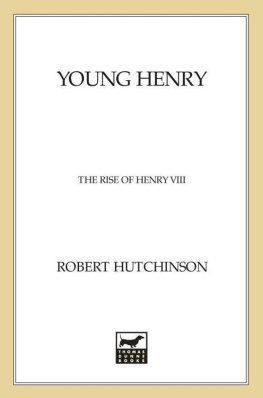
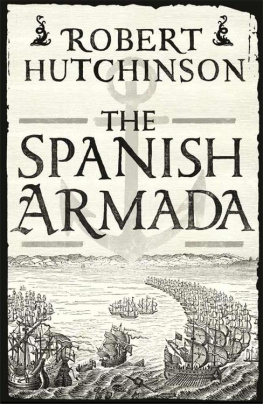

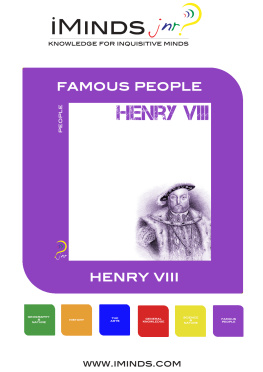
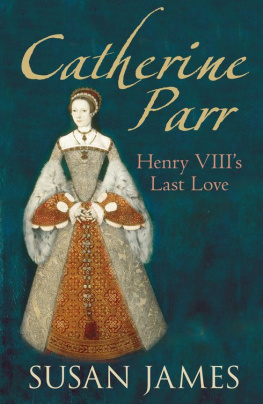
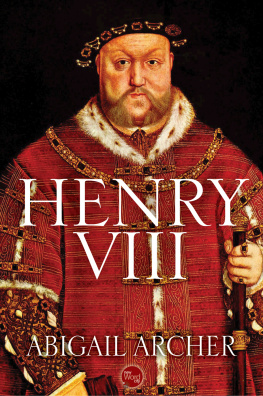
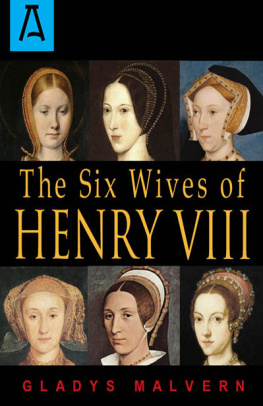
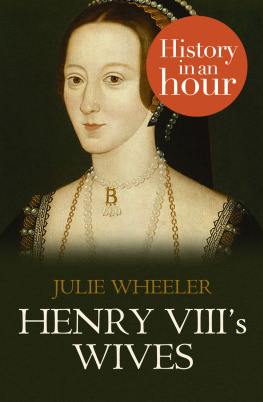
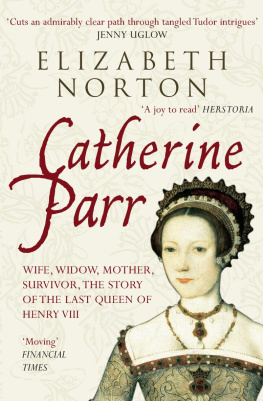
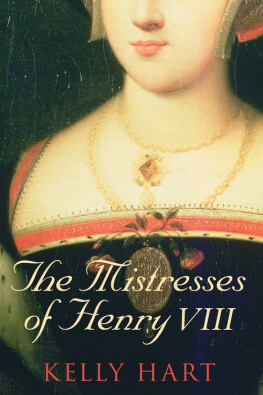
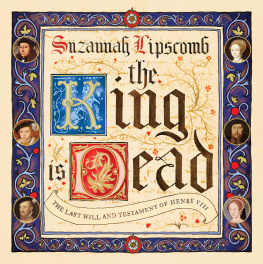
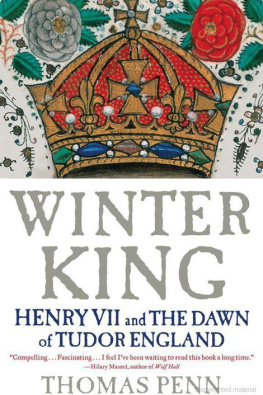
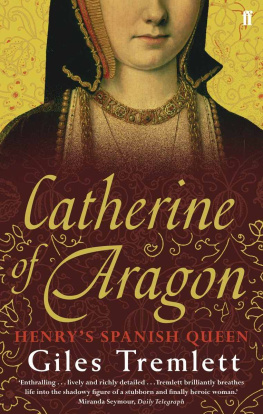
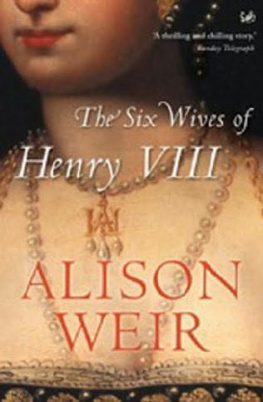
 The author and publisher have provided this e-book to you for your personal use only. You may not make this e-book publicly available in any way. Copyright infringement is against the law. If you believe the copy of this e-book you are reading infringes on the authors copyright, please notify the publisher at: us.macmillanusa.com/piracy .
The author and publisher have provided this e-book to you for your personal use only. You may not make this e-book publicly available in any way. Copyright infringement is against the law. If you believe the copy of this e-book you are reading infringes on the authors copyright, please notify the publisher at: us.macmillanusa.com/piracy .